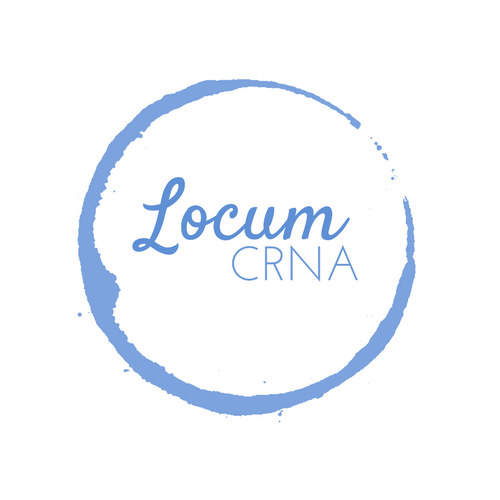SRNAs: Because this comes up several times per month and I had an experienced CRNA ask me my thoughts. Some will say they are appalled I would state this and some would back it 110%. I'm going to explain the perceptions and then the exceptions and leave it out there.
Seasoned CRNA:
I didn't think most agencies would hire new grads.
Me:
No they typically won't. A few reasons and I don't say it to be mean. 1) most are wanting to credential before passing boards. They can't do that because a provider must be qualified to practice in order to be credentialed. A facility hiring a new grad may go through all the steps of credentialing pending boards and licensure but both boards and licensure take time post graduation. Then the credentialing office verifies those two things and your off to the races. Unfortunately, locums the facility can't guarantee you will pass boards and be licensed and therefor the same dilemma of time between graduation and taking a first job exists. 2) The SRNA pending CRNA isn't proven safe in an established practice for a period of time. If they have been in practice less than 3-6 months were they let go from a facility for cause either interpersonal dynamics or poor practice?? 3) Locums are used because a facility or practice is short of help and needs someone that has developed their practice and can jump in and provide skilled care in less than optimal conditions. 4). It can be hard to go from student mode to alone especially if most or all your education and training was 1-1 with someone always there. This transition is helped by going to a practice that has people that can facilitate the growth from student role to provider role. I believe this can be established in any role but some are definitely more challenging than others.
For example some ACT keep CRNAs in a very restricted environment that can be more of a hindrance so the CRNA fully develops all of their skills. Other ACT environments use CRNAs to their capacity but have the Medical Direction model and each does their part in a collegial practice. Some CRNA only or private groups where both MDAs and CRNAs work on independent cases will say that you are a CRNA and should do only what you know. Others will teach and build you up to the full capacity of that practice. Still some only do a certain type of practice, which they are excellent at. However, they lose other skills and if branching out find a difficulty in full scope of practice. Solo practice... Most say a highly skilled CRNA of at least 5 years practice should go to these places. This depends on training and the experience they had in 5 years. If they have been doing blocks, spinals, epidurals, lines, kids, adults, critical to fast paced out patient for 5 strong years. That's what the solo practice is looking for along with someone that wants to learn and grow as a provider. Really, this is what a locum agency and average short-handed facility would like too.
Am I saying that new grads have not gone directly into locums or solo practice? Nope. Am I saying they are poor providers? No. I'm saying that it's not recommended and many agencies will discourage the practice of locums for new graduates. Most request 1-2 years of practice to be comfortable in your role and discussing with medical staff regarding patient care.
If you feel I've missed something please e-mail me and I am happy to edit this. LocumCRNAs@gmail.com

